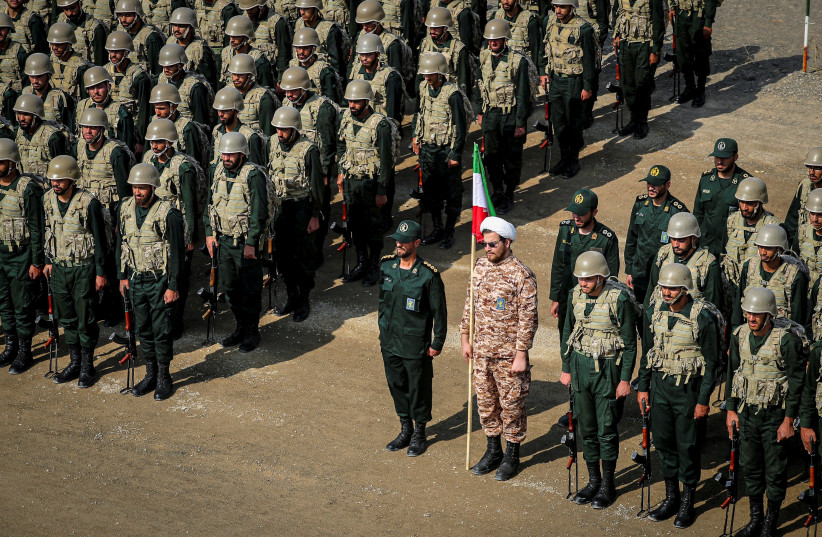More than two months after the terrorist assault carried out by Hamas against Israel, the Middle East faces a critical period marked by the escalating influence of Iran within the region.
The emergence of four conflict fronts – Gaza, Lebanon, Syria, and Yemen– expanded the conflict with Gaza to involve neighboring nations and underscored Iran’s strategic encirclement against Israel.
Since the surprise attack on October 7, Hamas has sought consistent support from Iran. It appears that an unspoken agreement with Iran was established before the assault took place. Strategically, Hamas foresaw Israel’s strong and immediate military response and counted on the involvement of the three other Iranian proxies.
Specifically, the broader conflict escalated when Hezbollah initiated a northern front against Israel from Lebanon. This included actions such as launching anti-tank missiles into populated areas and targeting Israeli surveillance measures along the border.
Israel's response of defense
Israel responded by successfully protecting the North against Hezbollah’s attacks and then retaliating with its own offensive, conducting airstrikes on Hezbollah bases and infrastructure situated deep within Syrian and Lebanese territories. At the same time, defensive measures against threats originating from Syria were coupled with unofficial offensive engagements with the Houthis in Yemen.
In confidential discussions, regional leaders acknowledge Israel’s imperative to respond decisively to the actions of Iran’s proxies. Behind closed doors, international forums are deliberating potential future regional engagements and are considering the involvement of nations like Saudi Arabia and other moderate Arab countries.
Government officials recognize that these deliberations are a multi-phase process that would span several months. The primary goals of these arrangements would be to facilitate Gaza’s reconstruction and to establish a political resolution acceptable to Israel.

Currently, clandestine collaborations are ongoing between Israel and Saudi Arabia, primarily involving the use of an American threat detection system. This initiative could potentially serve as a fundamental cornerstone for future regional agreements that Israel aims to establish. It could also contribute significantly to the advancement of the Israeli-Saudi agreement that was disrupted on October 7.
These collaborations bear substantial diplomatic potential for fostering regional economic development and safeguarding the security interests of Israel and its neighboring countries. Furthermore, the advancement of such regional approaches contributes to the overall regional peace process and counteracts the growing influence of the Shi’ite axis.
In addition, normalization agreements between Gulf nations and Israel would facilitate economic cooperation between India and Europe. This development would have significant regional implications for transforming participating states and countering Iran’s ambitions to expand its influence. This outcome is expected to gain more attention after the Gaza war and will be largely influenced by Israel’s decisions with the moderate Arab axis and with Western nations.
The establishment of a temporary governing structure in Gaza, aimed at isolating Iran’s proxies, becomes a critical aspect of any future strategic approach. At this juncture, it appears unlikely for the Israeli government to make immediate concessions to the Palestinians. However, the progression of the Abraham Accords may present an opportunity to integrate elements conducive to addressing issues concerning the Palestinians as part of an overall regional resolution.
ISRAEL’S REPORTED inclination toward forming a “government of technocrats” in ongoing discussions hints at the potential trajectory for governance. This move indicates a shift towards a professional, non-partisan administration capable of addressing critical civilian needs and governing competently amid challenging circumstances. This configuration could ensure a more stable and secure environment and provide a framework for effective law enforcement.
Additionally, the prospect of establishing a deep-water port under security supervision could provide significant economic incentive. The retention of certain security measures by the IDF, such as the right to “hot pursuit” to prevent potential attacks, highlights the ongoing security concerns and the need for a well-structured governance system. Sustained international engagement and a robust governance structure are fundamental for stabilizing the situation in Gaza.
The proposal for a diplomatic solution involves constructive measures aimed at fostering positive outcomes. A temporary mandate is crucial for establishing essential setups, such as a civilian service subdivision, and aligning them with the new administrative elements within the local government framework.
This interim arrangement would enable Israel to engage in long-term agreements concerning Gaza and would operate in tandem with Israel’s expressed interest in continuing the normalization process with Arab nations. Such continuity not only allows for reshaping regional dynamics but also consolidates support from the moderate Arab axis, consequently advancing the broader political process.
The development of Gaza after the war is part of Israel’s normalization process in the region. Expanding the circle of peace with the moderate Arab axis and cultivating connections with the European-India initiative can be seen as necessary steps towards mitigating the sway of political and military terrorist extremist groups like Hamas, which presently continue to garner support among the Palestinians.
The absence of this approach would only lead to another round of war and would pose challenges in justifying future actions. The establishment of a temporary civilian government accompanied by international support would serve as an indispensable, initial framework.
Upon broader regional integration, this approach not only holds the promise of reshaping the political relationship between Israel and the Gaza Strip on a positive trajectory but also serves to support greater regional stability and prospects for peace.
The writer is a research fellow at the Europa Institute at Bar-Ilan University.
